
A masterful performance at Radio Studio Zurich in Switzerland in 2018 from London jazz pianist Alexander Hawkins, improvising over a wide range of interests from jazz & blues to avant compositional work, with impressive skill as he runs complex and diverging figures on each hand that are coherent and exhilarating to follow, balanced with beautiful reflective sections.
Out of Stock
Quantity in Basket: None
Log In to use our Wish List
Shipping Weight: 5.00 units
Sample The Album:
Alexander Hawkins-piano
Click an artist name above to see in-stock items for that artist.
UPC: 7640120193300
Label: Intakt
Catalog ID: ITK330
Squidco Product Code: 26987
Format: CD
Condition: New
Released: 2019
Country: Switzerland
Packaging: Jewel Case
Recorded at Radio Studio Zurich, in Zurich, Switzerland, on September 22nd and 23rd, 2018, by Martin Pearson.
"Alexander Hawkins is a creative epicentre from the London jazz scene and is regarded in the UK as one of the most innovative musicians of the younger generation with a surprising radius of action. He plays with Evan Parker, Wadada Leo Smith, Taylor Ho Bynum, Louis Moholo, Shabaka Hutchings and Elaine Mitchener. Iron into Wind is the name of his new piano solo. The phrase "Iron into Wind" evokes for him both the transience of improvisation and a fascination with solid material, represented by the powerful blocks of sound to be heard in several of these pieces. Richard Willimas writes in the liner notes: "The mood varies from the two-handed avant-gospel figurations of "Congregational" to the hurtling "Étude" via the austere ruminations of "Tumble Mono", the knotted blues of "Strange Courage" and the explosive accelerations of "It Should Be a Song", with a diversion, in "Pleasant Constellation", by way of variations on an element from Sun Ra's "Fate in a Pleasant Mood". What he achieves here is a fine balance of all his interests, creating a self-portrait of a wonderfully inventive modern musician."-Intakt
"British jazz pianist Alexander Hawkins presents here a solo recital recorded at Radio Zurich in September of last year. As one can tell from the titles of his original pieces on this CD, Hawkins enjoys juxtaposing words that normally don't go together (Tough Like Imaginatino, Pleasant Constellation, Strange Courage, Hard as Threads, Tumble Mono), and in his music he also juxtaposes unusual and sometimes contrary-appearing themes to create them. One cannot really call his music "free jazz" in the sense that Ornette Coleman, Paul Bley or Pharoah Sanders used it, but it certainly incorporates elements of outside jazz within well-organized structures.
To a certain extent, this album reminded me of Charles Mingus' old LP of piano improvisations. Hawkins sounds as if he just sat down at the keyboard, played some ideas he had been toying with, and then expanded them via improvisation into whole works. But his actual playing, at times, has more in common with Thelonious Monk than with Mingus, i.e. in Congregational where his flat-fingered keyboard attack with no use of pedal sounds for all the world like Monk trying to play jazz that was even more outré than his own unusual works. I say "more outré" because Hawkins, unlike Monk, does not hold a steady rhythm, but rather delights in playing a series of oddly-spaced beats and meters in the left hand against whatever he is doing in the right. He does, however, stick mostly to playing chords in the left hand as most pianists do rather than complex single-note counter-lines-which is not to say that it makes the music any easier to digest, just that it provides at least a little grounding for those listeners who have trouble following two complex lines instead of one.
Like the Cuban-born pianist Aruán Ortiz, Hawkins appears to have a fairly strong classical background. I say this because his sense of construction is quite rigorous despite how he departs from the norm. In Tough Like Imagination, he does indeed depart from the pattern of the first two pieces and plays contrasting, quickly-moving lines with both hands. Intriguingly, when he plays the right hand in the upper register he brings the left hand up with it, and when he plays lower lines in the bass he brings the right hand down. Thus they are seldom more than an octave, give or take, apart. In Pleasant Constellation, however, the left hand is really rumbling through some complex chord clusters while the right goes on its own discrete improvisation. This is really freaky stuff!
Gossamer Like a Ghost Tree is a slow, sparse collection of what appear to be random and loosely-linked notes, with Hawkins doubling the tempo in the right hand here and there. In Strange Courage, Hawkins fools the ear with what sounds at the outset like a normal jazz pulse, only to pull the rug out from under you within a bar or two, eventually playing bass notes between the beats behind the right hand. Eventually the interplay becomes so complex that only the occasional rhythmic signpost in the bass tells you that this is, in fact, jazz.
In It Should Be a Song, Hawkins begins with sparse chord clusters before doubling the tempo and sprinkling left-hand arpeggios against right-hand fantasia-like figures. Then, at 2:50, he's back to doing his "outside" version of Monk, only this time even more complex in his use of cross-rhythms. Hard as Threads is clearly a piece that at least tries to be "free jazz," yet even so Hawkins' innate sense of structure keeps it from being incomprehensible except to the most obtuse listener. Even I couldn't tell where the sparse notes and loosely-related chords of Tumble Mono were going when it started, and even though he got into meatier playing with thick chords and downward chromatics by 3:20, this is the one piece that seemed to me to get bogged down. But hey, nobody's perfect.
In Wander/Wonder, Hawkins appeared to be thinking, from the outset, in two different rhythms and ideas, yet somehow manages to fuse them into a single piece. Eventually it moves so quickly and becomes so complex that it seemed to me that the "wander" overtook the "wonder"-but it's still an amazing creation. Indeed, it struck me that Hawkins, like Mingus, may have simply improvised these pieces into being and then improvised titles to stick onto them. Perhaps, like Mingus, he may even rename some of them in the future as the spirit moves him. Etude is clearly the busiest, most complex piece on the album, an outstanding way to close this generally complex set.
Of course, the question that many jazz listeners may ask themselves is the obvious one: Is this music "really" jazz? Yes, certainly it is unless you are one of those who still think that jazz must have a steady rhythm, be tonally centered, and always swing. There are moments on this album, and entire pieces, in which Hawkins' sense of swing sounds quite minimal and others where it is quite strong despite the amorphous structure of these works, but jazz has become so complex since the mid-1960s that it would do him and the concept of jazz per se a great disservice to claim the contrary. Jazz can indeed be fun music within creative boundaries, but it is also an art music with street-level roots, and these roots have grown in myriad ways over the past half-century. Just give yourself two or three listens to the entire album, and try to follow different threads of each piece every time you re-listen to it, and you'll see what I mean."-Lynn René Bayley, Art Music Lounge
Get additional information at Art Music Lounge
Artist Biographies
• Show Bio for Alexander Hawkins "Alexander Hawkins is a composer, pianist, organist, and bandleader who is 'unlike anything else in modern creative music' (Ni Kantu) and whose recent work has reached a 'dazzling new apex' (Downbeat). A largely self-taught improviser, he works in a vast array of creative contexts. His own highly distinctive soundworld is forged through the search to reconcile both his love of free improvisation and profound fascination with composition and structure. In 2012, he was chosen as a member of the first edition of the London Symphony Orchestra's 'Soundhub' scheme for young composers. He also received a major BBC commission in late 2012 for a fifty minute composition: One Tree Found was first performed and broadcast in March 2013, and was subsequently performed and broadcast for the WDR in Cologne (2014). He has also twice been commissioned by the London Jazz Festival (once as composer, once as an arranger), and by the Cheltenham Jazz Festival (2016). An in-demand sideman, Hawkins continues to be heard live and on record with vast array of contemporary leaders of all generations, including the likes of Evan Parker, John Surman, Joe McPhee, Mulatu Astatke, Wadada Leo Smith, Anthony Braxton, Marshall Allen, Rob Mazurek, Taylor Ho Bynum, and Harris Eisenstadt, amongst many others. He has also been noted in recent years for his performances in the bands of legendary South African drummer, Louis Moholo-Moholo. Concert appearances have taken him to club, concert and festival stages worldwide." ^ Hide Bio for Alexander Hawkins
11/29/2024
Have a better biography or biography source? Please Contact Us so that we can update this biography.
Track Listing:
1. Song All The Way 4:27
2. Congregational 4:26
3. Tough Like Imagination 4:31
4. Pleasant Constellation 4:46
5. Gossamer Like A Ghost Tree 3:43
6. Strange Courage 5:29
7. It Should Be A Song 5:35
8. Hard As Threads 3:06
9. Tumble Mono 6:08
10. Wander / Wonder 6:13
11. We All Bleed 4:05
12. Etude 4:36
Intakt
Improvised Music
Jazz
Free Improvisation
London & UK Improv & Related Scenes
Piano & Keyboards
Solo Artist Recordings
Staff Picks & Recommended Items
Jazz & Improvisation Based on Compositions
Search for other titles on the label:
Intakt.


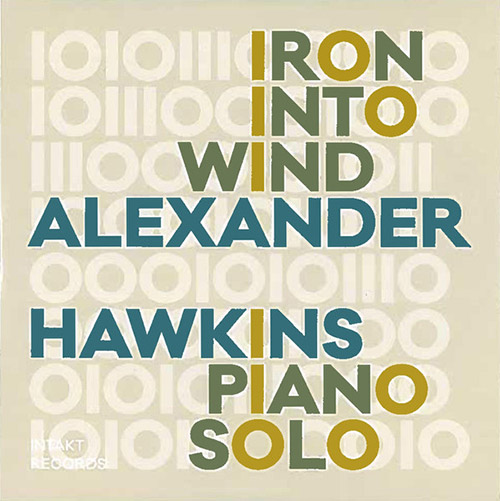
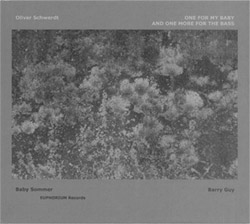
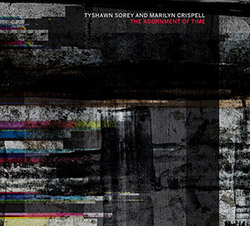
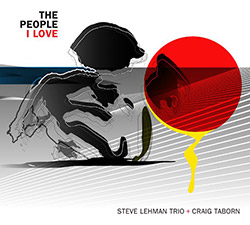
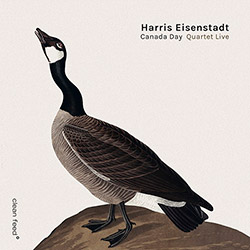




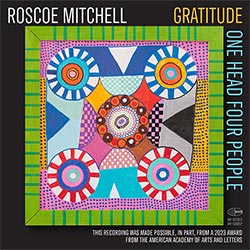
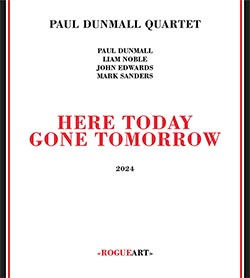
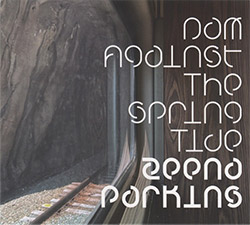
![Weston, Matt: Communism Has Appeared On The Scene [VINYL 2 LPs]](https://www.teuthida.com/productImages/misc4/35546.jpg)
![Coleman, Steve & Five Elements: PolyTropos / Of Many Turns [2 CDs]](https://www.teuthida.com/productImages/misc4/35476.jpg)
![Sorey, Tyshawn (w/ Diehl / Ragahavan): The Susceptible Now [DOUBLE VINYL]](https://www.teuthida.com/productImages/misc4/35477.jpg)


![John Coltrane Quartet (Coltrane / Tyner / Garrison / Jones): Impressions From Graz 1962, Revisited [2 CDs]](https://www.teuthida.com/productImages/misc4/35495.jpg)

![Guy, Barry / Ken Vandermark: Occasional Poems [2 CDs]](https://www.teuthida.com/productImages/misc4/34849.jpg)
![Novoa / Carter / Mela Trio: Vol.1 [VINYL]](https://www.teuthida.com/productImages/misc4/35236.jpg)


![Elephant9 : Mythical River [VINYL]](https://www.teuthida.com/productImages/misc4/34624.jpg)
![Evans, Peter (Evans / Eldh / Black): Extra [VINYL]](https://www.teuthida.com/productImages/misc4/35279.jpg)

![McPhee, Joe: Straight Up, Without Wings [BOOK]](https://www.teuthida.com/productImages/misc4/35454.jpg)
![Jeck, Philip: rpm [2 CDs]](https://www.teuthida.com/productImages/misc4/35455.jpg)









![Barker / Parker / Irabagon: Bakunawa [VINYL]](https://www.teuthida.com/productImages/misc4/35533.jpg)





![Blaser, Samuel / Marc Ducret / Peter Bruun: Dark Was The Night, Cold Was The Ground [VINYL 10-inch]](https://www.teuthida.com/productImages/misc4/35492.jpg)






![Warren, Kenny (Warren / Hoffman / Ellman): Sweet World [VINYL]](https://www.teuthida.com/productImages/misc4/35451.jpg)




![Blake, Ran / Dave Knife Fabris: Live Amsterdam 2006, First Visit [CD + POSTCARDS]](https://www.teuthida.com/productImages/misc4/35275.jpg)




![DNS: Taking Big Bites Of The Khandas Three Cafes Deep [2 CDs]](https://www.teuthida.com/productImages/misc4/35334.jpg)




![Cleaver, Gerald: The Process [VINYL]](https://www.teuthida.com/productImages/misc4/34966.jpg)




![Alva Noto: HYbr:ID II [VINYL 2 LPs]](https://www.teuthida.com/productImages/misc4/35201.jpg)

![Baron, Derek / Luke Martin: Distinct and Concealed [CASSETTE + DOWNLOAD]](https://www.teuthida.com/productImages/misc4/35079.jpg)

![Lyle, Erica Dawn : Colonial Motels [CASSETTE + DOWNLOAD]](https://www.teuthida.com/productImages/misc4/35080.jpg)









![Sanna, Claudio: Compositori Sardi Contemporanei II [2 CDs]](https://www.teuthida.com/productImages/misc4/35317.jpg)







![Zurria, Manuel: Fame di Vento [3 CDs]](https://www.teuthida.com/productImages/misc4/35167.jpg)

![Granberg, Magnus / Nattens Inbrott / Skogen: Holde Traume, Kehret Wieder! [2 CDs]](https://www.teuthida.com/productImages/misc4/35038.jpg)
![Frey, Jurg: Outermost Melodie [2 CDs]](https://www.teuthida.com/productImages/misc4/35039.jpg)

![Pavone, Jessica: Reverse Bloom [VINYL]](https://www.teuthida.com/productImages/misc4/34895.jpg)




![Modney (Modney / Wooley / Gentile / Roberts / Pluta / Symthe / ...): Ascending Primes [2 CDs]](https://www.teuthida.com/productImages/misc4/34852.jpg)







![Elephant9 with Terje Rypdal: Catching Fire [VINYL 2 LPs]](https://www.teuthida.com/productImages/misc4/35355.jpg)
![Deerlady (Obomsawin, Mali / Magdalena Abrego): Greatest Hits [VINYL]](https://www.teuthida.com/productImages/misc4/34876.jpg)




![Haino, Keiji: Black Blues [2 CDs]](https://www.teuthida.com/productImages/misc4/35109.jpg)



![Surplus 1980: Illusion of Consistency [CD]](https://www.teuthida.com/productImages/misc4/35069.jpg)
![Staiano, Moe: Away Towards the Light [VINYL + DOWNLOAD]](https://www.teuthida.com/productImages/misc4/35037.jpg)



![Caveira (Gomes / Sousa / Abras / Ferrandini): Ficar Vivo [VINYL]](https://www.teuthida.com/productImages/misc4/34643.jpg)
![Gregg, J. J. / David Van Auken: Lunar Prairie [CD w/ DOWNLOAD]](https://www.teuthida.com/productImages/misc4/34611.jpg)

![Coultrain: Mundus [VINYL]](https://www.teuthida.com/productImages/misc4/32439.jpg)
![Mattin: Songbook #6 [VINYL]](https://www.teuthida.com/productImages/misc4/27317.jpg)
![Punkappella: Wake Up [7-inch VINYL]](https://www.teuthida.com/productImages/misc4/17519.jpg)
![Residents, The: WARNING: UNiNC.: Live And Experimental Recordings 1971-1972 [VINYL 2 LPs]](https://www.teuthida.com/productImages/misc4/31521.jpg)
![Coultrain: Phantasmagoria [VINYL]](https://www.teuthida.com/productImages/misc4/30142.jpg)
![Lennon, Sean Ono: Asterisms [VINYL]](https://www.teuthida.com/productImages/misc4/34517.jpg)

![Coley, Byron: Dating Tips for Touring Bands [VINYL]](https://www.teuthida.com/productImages/misc4/17906.jpg)

![Lost Kisses: My Life is Sad & Funny [DVD]](https://www.teuthida.com/productImages/misc4/lostKissesDVD.jpg)